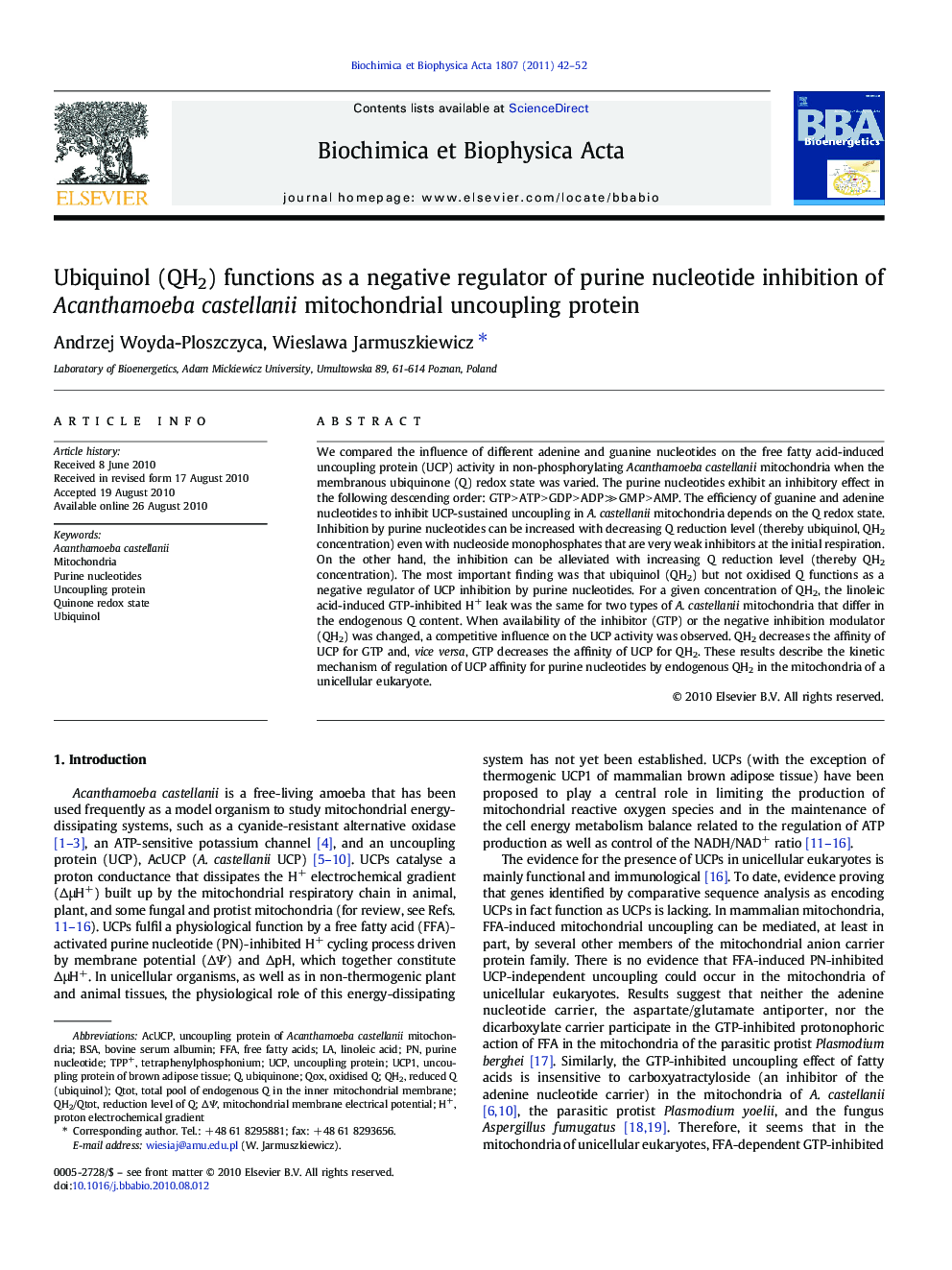| کد مقاله | کد نشریه | سال انتشار | مقاله انگلیسی | نسخه تمام متن |
|---|---|---|---|---|
| 1942739 | 1052626 | 2011 | 11 صفحه PDF | دانلود رایگان |

We compared the influence of different adenine and guanine nucleotides on the free fatty acid-induced uncoupling protein (UCP) activity in non-phosphorylating Acanthamoeba castellanii mitochondria when the membranous ubiquinone (Q) redox state was varied. The purine nucleotides exhibit an inhibitory effect in the following descending order: GTP > ATP > GDP > ADP ≫ GMP > AMP. The efficiency of guanine and adenine nucleotides to inhibit UCP-sustained uncoupling in A. castellanii mitochondria depends on the Q redox state. Inhibition by purine nucleotides can be increased with decreasing Q reduction level (thereby ubiquinol, QH2 concentration) even with nucleoside monophosphates that are very weak inhibitors at the initial respiration. On the other hand, the inhibition can be alleviated with increasing Q reduction level (thereby QH2 concentration). The most important finding was that ubiquinol (QH2) but not oxidised Q functions as a negative regulator of UCP inhibition by purine nucleotides. For a given concentration of QH2, the linoleic acid-induced GTP-inhibited H+ leak was the same for two types of A. castellanii mitochondria that differ in the endogenous Q content. When availability of the inhibitor (GTP) or the negative inhibition modulator (QH2) was changed, a competitive influence on the UCP activity was observed. QH2 decreases the affinity of UCP for GTP and, vice versa, GTP decreases the affinity of UCP for QH2. These results describe the kinetic mechanism of regulation of UCP affinity for purine nucleotides by endogenous QH2 in the mitochondria of a unicellular eukaryote.
Figure optionsDownload high-quality image (36 K)Download as PowerPoint slideResearch Highlights
► Purine nucleotides inhibit A. castellanii UCP in a Q redox state-dependent way.
► QH2 functions as a negative regulator of UCP inhibition by purine nucleotides.
► UQ2 and purine nucleotides interact in a competitive way on UCP activity.
Journal: Biochimica et Biophysica Acta (BBA) - Bioenergetics - Volume 1807, Issue 1, January 2011, Pages 42–52